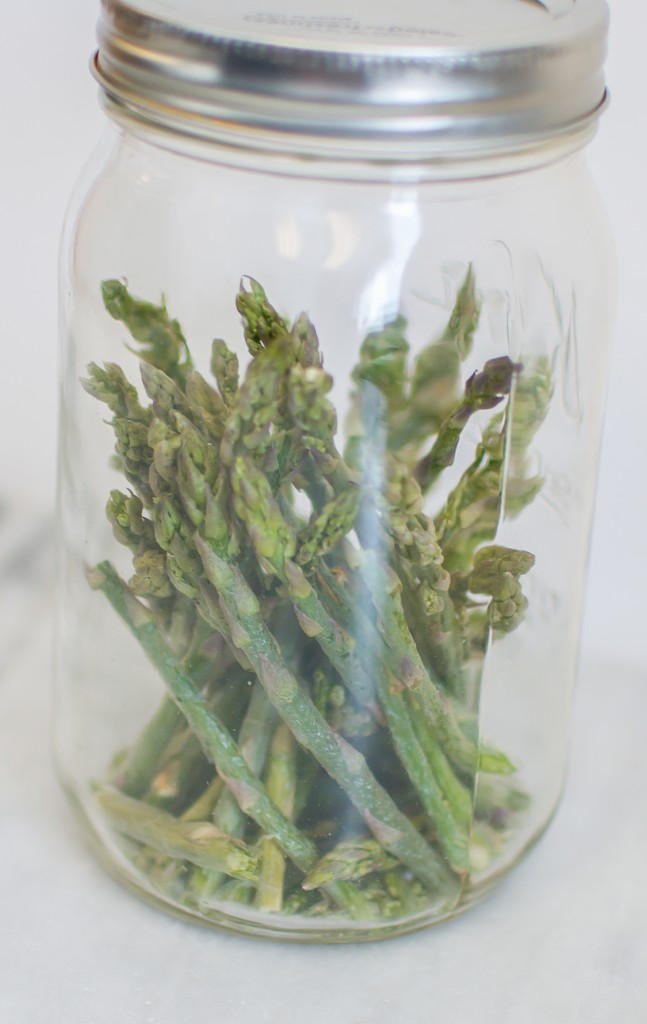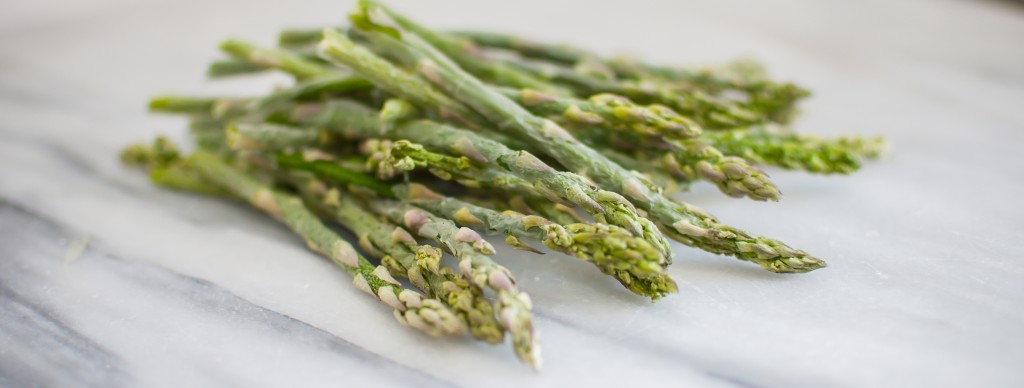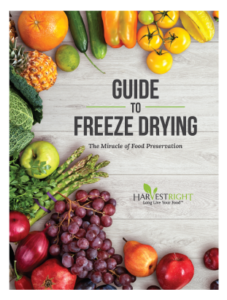Let’s talk about asparagus. If you’re going to freeze dry one vegetable, asparagus is a good choice. Besides all of the usual vitamins, asparagus also contains chromium – a trace mineral that helps regulate blood sugar. Asparagus is also extremely high in fiber and can help reduce water retention. Asparagus comes in giant bundles that always seem to be too much for one dinner but not enough for two, making that extra bit the perfect candidate for freeze drying.
Watch this video for some helpful tips on how to successfully cut and freeze dry asparagus. We recommend blanching asparagus before freeze drying. Blanching seems to help the asparagus not shrivel a bit during the freeze drying process. Also, generally, the skinnier asparagus works well if you want to be able to rehydrate it without a ‘stringy’ texture. But, any asparagus works great for a crunchy snack with a bit of olive oil and seasoning. When rehydrating, place in a pot of hot water on the stove and cook for a little less time than you would if it were fresh.
dry asparagus. We recommend blanching asparagus before freeze drying. Blanching seems to help the asparagus not shrivel a bit during the freeze drying process. Also, generally, the skinnier asparagus works well if you want to be able to rehydrate it without a ‘stringy’ texture. But, any asparagus works great for a crunchy snack with a bit of olive oil and seasoning. When rehydrating, place in a pot of hot water on the stove and cook for a little less time than you would if it were fresh.
You can also add freeze dried asparagus to soups and casseroles and it can rehydrate during the normal cooking process. One of our favorite ways to serve asparagus is with a lemon verbena pesto. Put 2 cups of lemon verbena leaves, 1/4 cup of pine nuts and 1 cup of Parmesan cheese in the food processor or blender and add olive oil until the mixture makes a paste and spread it over your rehydrated asparagus.






Would steaming work to rehydrate asparagus. I never boil asparagus because I don’t like it too soft so I usually steam it then saute it. Just wondering if that would work for rehydrating freeze dried asparagus.
Very interesting question! I think I would steam shortly and then roast. We’ve also had great luck with asparagus soup
Should we freeze the asparagus before we freeze dry it
This will speed up the process, but you do not have to do pre-freeze.